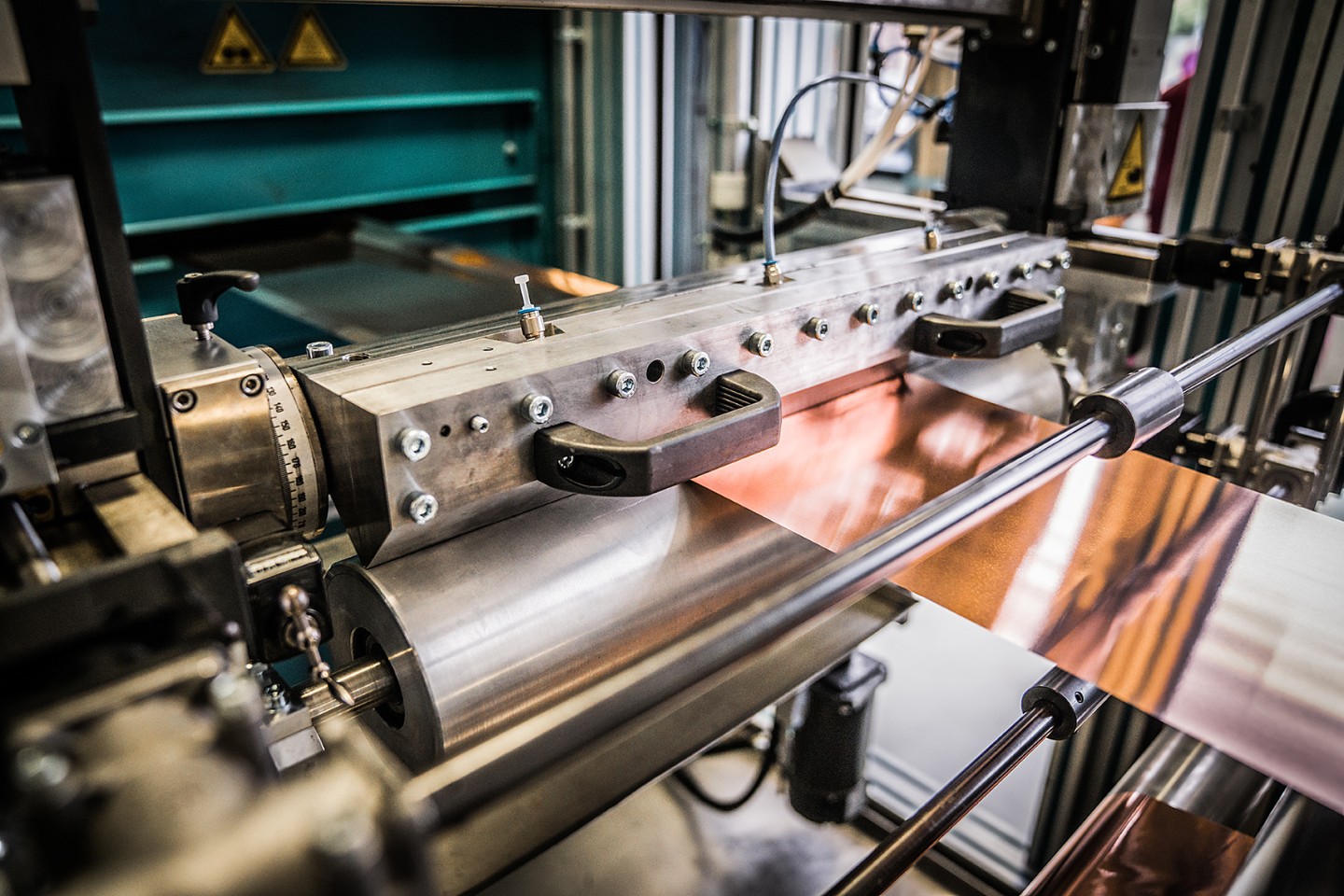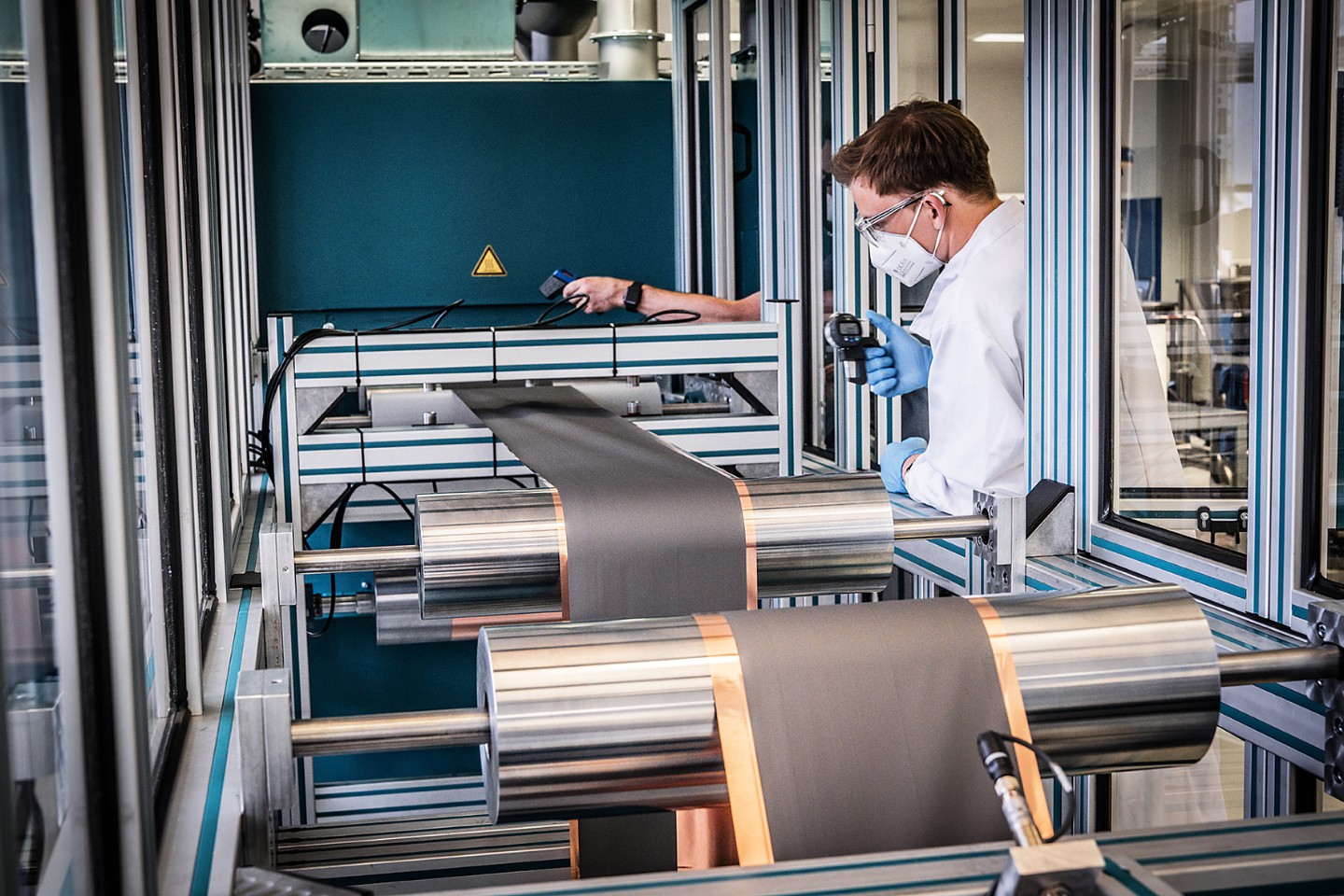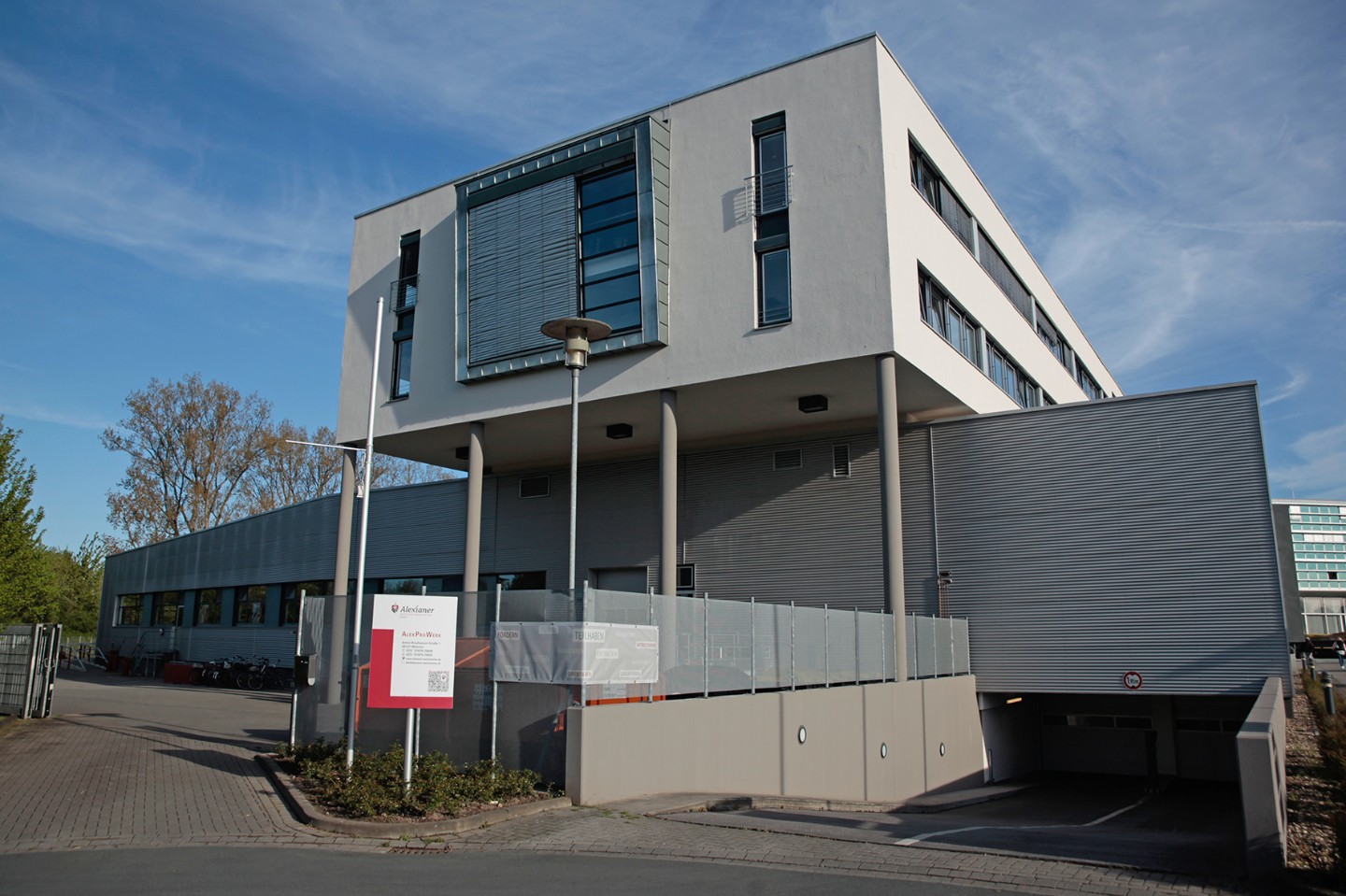Further development of electrode production
Research Fab Battery Cells starts research activities in Münster
Münster. The Fraunhofer Research Fab Battery Cells (FFB) has started its research activities in Münster. Employees of Fraunhofer-Gesellschaft and MEET Battery Research Center at the University of Münster (WWU) have put a mixing and coating system into operation in the "FFB Workspace" to test electrode production. The aim is to further develop the fully continuous mixing process with regard to the electrode material, the processes and digitization. With the infrastructure in the clean room of the “AlexProWerk”, the Research Fab Battery Cells can carry out initial research contracts for the industry.



"Our goal is to optimize the electrode formulation as well as the mixing and coating production steps with regard to cell quality," explains Professor Fritz Klocke, managing director of the Research Fab Battery Cells. "The production process should become more reliable and efficient in this way. The newly built infrastructure is an important step for us to test the process steps and to use the knowledge gained for the further development of the research production of battery cells."
Optimization of the fully continuous mixing and coating process
In the innovative process of fully continuous mixing in electrode production for battery cells, the materials with which the cathode and anode are coated are mixed in a continuous process and continuously brought to the coating system. The researchers at the Research Fab Battery Cells examine the production of the electrode paste. These investigations relate to both the properties of the paste and the behavior of the relevant system components.
The consistent digitization of these production processes will support the research work. With the help of digital simulations, the researchers identify cause-and-effect relationships of relevant process parameters with regard to the quality of the battery cell. To do this, they develop powerful methods for machine connection and networking as well as for data acquisition and analysis. These findings will then be transferred to the construction of a digital factory, which will be created as a “digital twin” of the Research Fab Battery Cells.
New cell chemistries
The researchers at MEET Battery Research Center at University of Münster are working in the “FFB Workspace” on the development and optimization of the so-called slurry formulations for electrodes in high-energy and high-power cells. The slurry is the paste with which the copper foil of the electrode is coated after the mixing process. The team around Professor Dr. Martin Winter and Dr. Falko Schappacher will formulate new cell chemistries in the future in order to cover the broadest possible spectrum of cell chemistries for the requirements of different industrial areas in battery cell research. "The MEET team specializes in battery cell technology and production with a special focus on paste development, chemical processes, materials and properties as well as cell production," says Dr. Falko Schappacher, commercial and technical director at the MEET Battery Research Center at the University of Münster. "With this know-how we are laying an important foundation stone for the work in the FFB Workspace."
Inclusive research
The Research Fab Battery Cells operates the mixing and coating system in the clean room of the "AlexProWerk" of the Alexianer Werkstätten Münster. Employees with disabilities of the workshops will be trained and actively participate in the sample production line. Process control, laboratory assistance, packaging and storage are some areas in which employees from the Alexianer Werkstätten can work. The research team has earmarked a total of six to eight jobs for the workshops alone. "We have practically brought an inclusive employer into our own company," explains Norbert Mussenbrock, manager of the Alexianer Werkstätten."Usually, our colleagues with disabilities go to companies as individuals or working groups and fill external positions integrated into the company."
Combination of laboratory and production research
The concept of the Research Fab Battery Cells (FFB) provides a combination of laboratory and production research for different battery cell formats - round cell, prismatic cell and pouch cell. The FFB employees research individual process steps or the entire production chain as required.
Battery cell production is optimized on the basis of various criteria, including the material, energy and resource efficiency or cost reduction. Together with the project partners of the MEET Battery Research Center of the University of Münster (WWU) and the Chair of Production Engineering of E-Mobility Components PEM of the RWTH Aachen University, Fraunhofer-Gesellschaft is creating an infrastructure with which small, medium-sized and large companies, but also research institutions, can test, implement and optimize the near-series production of new batteries.
The FFB is to become the center of modern and scalable battery cell production for Germany and Europe at the Münster location. So that production in Germany can provide new battery technologies more efficiently, more cheaply and in the highest quality in the future, the Federal Ministry of Education and Research and the state of North Rhine-Westphalia are funding the development of the Research Fab Battery Cells with a total of up to 680 million euros.